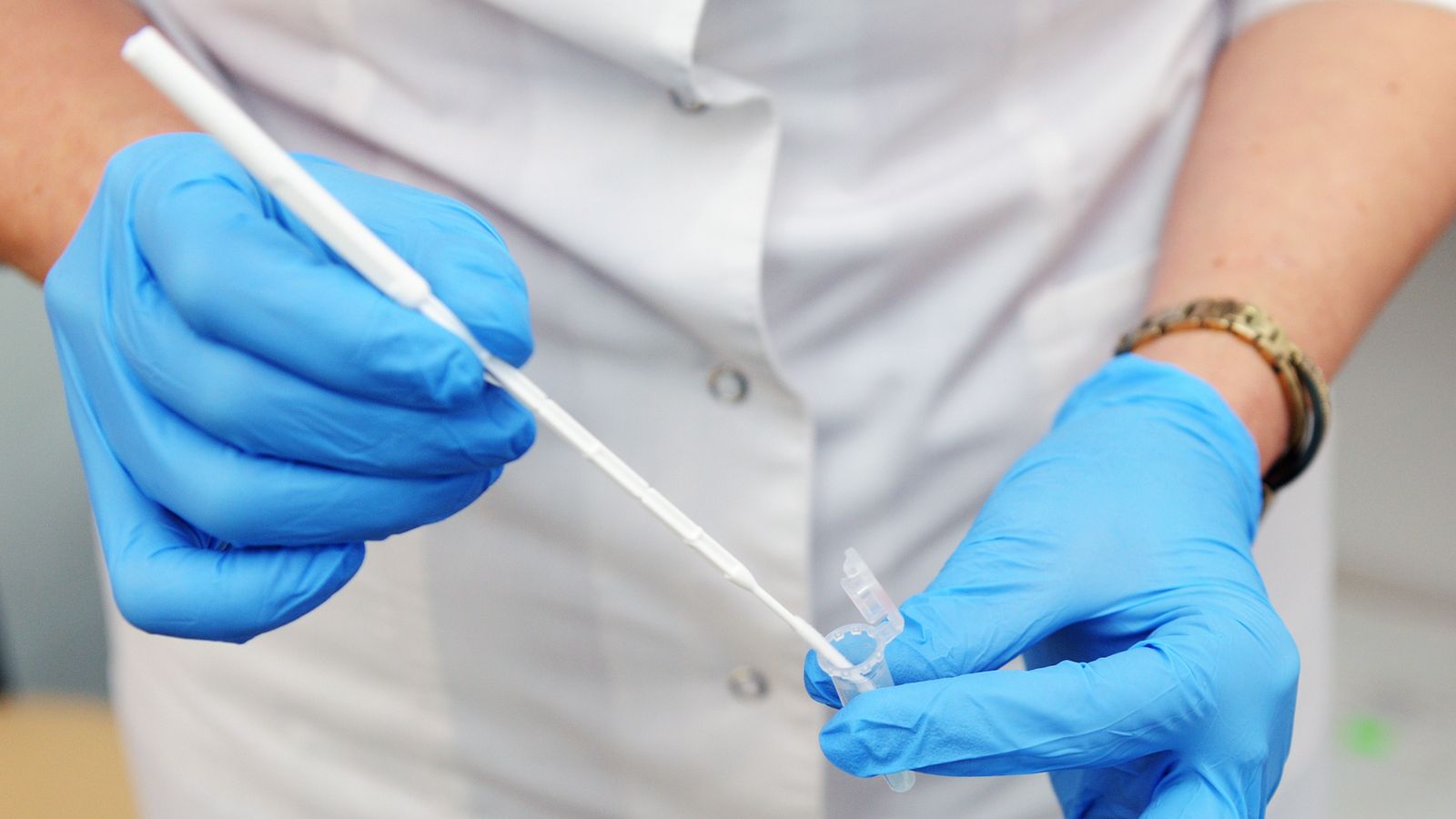The number of gonorrhoea and syphilis diagnoses was the highest on record last year, new figures show.
Annual figures from the UK’s Health Security Agency (UKHSA) show gonorrhoea diagnoses increased to 82,592 in 2022, an increase of 50.3% compared with 2021 (54,961).
This is the highest number of diagnoses in any one year since records began in 1918, the UKHSA said.
Data from the health body also shows that infectious syphilis diagnoses increased to 8,692 in 2022, the largest annual number since just after the Second World War.
People aged between 15 and 24 years are the most likely to be diagnosed with sexually transmitted infections (STIs) due to changing sexual partners more often than other age groups.
Be the first to get Breaking News
Install the Sky News app for free
‘More gonorrhoea diagnoses than ever before’
Dr Hamish Mohammed, consultant epidemiologist at UKHSA, said: “We saw more gonorrhoea diagnoses in 2022 than ever before, with large rises, particularly in young people. STIs aren’t just an inconvenience – they can have a major impact on your health and that of any sexual partners.
“Condoms are the best defence, but if you didn’t use one the last time you had sex with a new or casual partner, get tested to detect any potential infections early and prevent passing them on to others. Testing is important because you may not have any symptoms of an STI.”
Read more:
Gonorrhoea cases rise by over a fifth on pre-pandemic levels
New test to diagnose ‘the most common STI you’ve never heard of’
The Local Government Association has said the figures show that local council-commissioned sexual health services are at “risk of breaking point”.
Councillor David Fothergill, chairman of the Local Government Association’s community wellbeing board said: “These new statistics continue to show that local council-commissioned sexual health services are at risk of breaking point, with rising demand coming at the same time as real terms cuts to funding.”
He added that while it is encouraging to see more people visiting their local sexual health clinic which is a “testament to the work of councils with hard-to-reach communities in their areas”, it is becoming “increasingly unsustainable without a long-term increase in councils’ public health grant, which goes towards funding vital sexual health services”.
Though STIs are usually easily treated with antibiotics, some including gonorrhoea and chlamydia can cause serious health issues including infertility and pelvic inflammatory disease.
The UKHSA has urged people to use condoms and get tested regularly if having sex with new or casual partners.
Syphilis is a bacterial infection that is usually caught by having sex with someone who is already infected. It can be treated with antibiotics, but if left untreated can cause serious long-term problems.
In 2022, there were 2,195,909 diagnostic tests for chlamydia, gonorrhoea, syphilis or HIV – 13.4% more than 2021.
The UKHSA said that while the rise in gonorrhoea and syphilis diagnoses will partly be due to increases in testing, the sharp rise “strongly suggests” there is more transmission of STIs in the population.






















